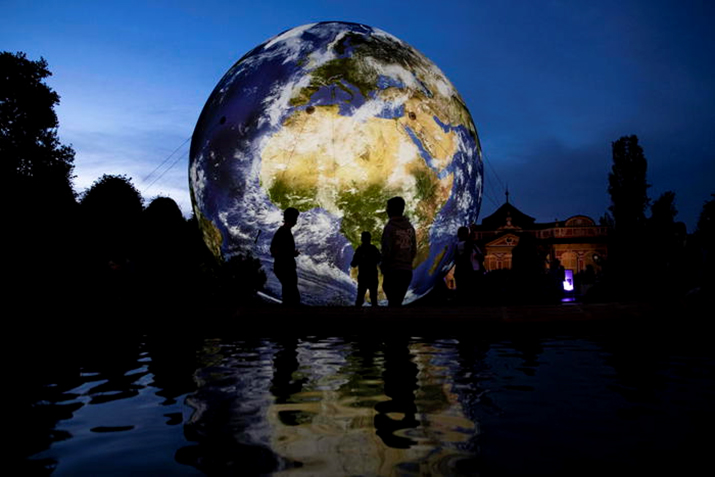COP26
The UN annual meeting devoted to implementing measures to contain climate change (referred to with the acronym CoP26), was held in Glasgow in November, and resulted, as expected, in a heated debate between participating parties. With shared concern for the objective deterioration of living conditions on planet Earth, opinions differed, and greatly so, regarding measures and relative times of adoption, measures that in the future might impede the worrying situation which is represented, as is widely publicised, by the phenomenon of accentuated overheating of our «common home», to use that endearing term coined by the former Russian President Michail Gorbachev, even if it was used in a decidedly more political context.
In summary, in an increasingly complex intertwining of tiring negotiations, of commitments undertaken but not substantiated as well as agreements immediately contradicted by the facts, the discussion - often resulting in open confrontation - in the Scottish football city, home of the arch-rival teams Celtic and Rangers, has developed on a double level.
The first involved the nearly 200 official delegations, representing the distinct "clubs" of industrialized states, developing countries and the so-called "Group of 77". By way of brief explanation, the latter have the bad luck of belonging to the countries that are most at risk in terms of future survival, either because of the endemic lack of resources to be administered or, in some cases, as a result of particular geographical location (if we consider those at sea level, threatened by the feared rise of water levels).
In the current world economic and industrial context, energy sources with a high rate of pollution (primarily coal, but without neglecting oil and its derivatives) are still predominantly used today (over 50% of the total) in the production of goods, both for the abundance of raw materials and for their low costs of revenue and use. Even against the background of the existing phase of international recession resulting from the prolonged pandemic, for countries that use coal extensively (China, India, essentially all the "emerging" countries that have it, but also technologically advanced nations, such as the United States), the climatic and environmental priorities are inevitably destined to confront the need to maintain, on an external front, competitiveness on the markets and, on an internal front, employment levels, which are susceptible, one as the other, to suffer the negative consequences of transition processes towards the green economy, certainly virtuous but considered too accelerated.
The second, on the other hand, opposed the group of official representatives (with the various distinctions of interests and sentiments mentioned above) to the variegated, colourful and "very vocal" world of environmental associations, which flocked massively to Glasgow, also to answer the call of recognized “icons” of pro-climate culture, such as Greta Thunberg and Vanessa Nakate among others. Giving rise to a sort of "permanent mobilization", the gatherings of young (and older) protesters spread rapidly to squares spanning the five continents, reaching levels of participation that most probably had previously been unheard of. With regard to this line-up, driven by an almost "messianic" fervour in relation to the absolute urgency of the alternative measures required to allow the planet to survive, there was no doubt that the UN meeting was dubbed a “total failure”, not to mention a “deliberate betrayal”.
"We have never been so close to avoiding climate chaos," declared United States envoy John Kerry at the conclusion of the work
With a less emotional and more objective analysis of the CoP26, also taking into account the existence of immensely distant starting positions, a less radical judgment may be attributed, attenuated as necessary (the first to show himself publicly disappointed was, significantly, the British president of the Convention, Alok Sharma) so as not to be entirely negative.
By far the most anticipated and important result, that of banning the use of coal, has failed – and it must be acknowledged - due to the intransigence of some, in particular India. However, no country has questioned the urgent recommendation by scientists to set the maximum limit allowed for global warming by 2030 at 1.5 degrees. In addition, the participating States have pledged to present national plans for further reduction of harmful emissions within the next year, to allocate funding, to impart new generation technology to less developed countries and to eliminate public aid for "inefficient" fossil fuels. Significant agreements have likewise been reached in various sectors, also for example in relation to combating deforestation processes as well as the contingent use of methane gas.
To conclude, John Kerry must be recognized for a truly extraordinary commitment to allow the exercise to end with the adoption of a document signed unanimously (the so-called Glasgow Climate Pact) and not, such as on the occasion of the Copenhagen CoP in 2009, with a sensational standstill. The words of the US envoy seem representative of a sufficiently shared mood. "We have never been so close to avoiding climate chaos," declared the former US secretary of state at the conclusion of the meeting.
In the absence of success at the first attempt, the title of a well-known film by one of his illustrious compatriots, Woody Allen, urges the protagonist to "play it again, Sam". In the case of climatic-environmental issues, the next meeting of CoP27 has been set in one year exactly and will take place in Egypt.
While we wait, in the name and to the sound of "Maria Dolens", Happy Holidays to all!
Reggente Marco Marsilli, Foundation President








